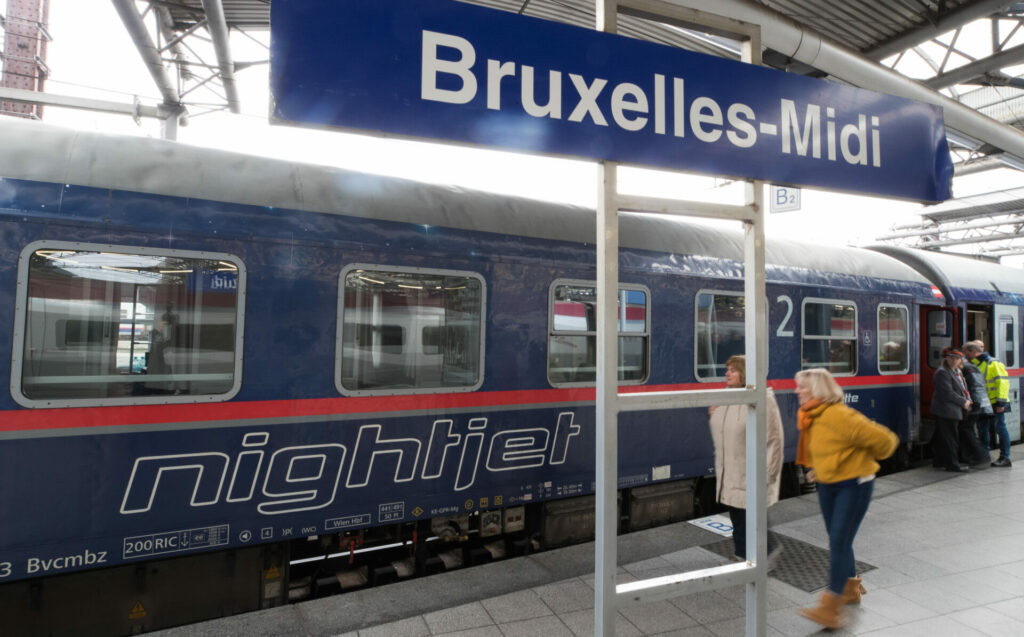A new overnight train service is being rolled out on Monday between the German capital of Berlin and Brussels, doubling the number of night trains between the two major European cities.
Since May 2023, getting to Berlin by night train was already possible with the European Sleeper, but on Monday night, a new service will start running between the two capitals. Half of the overnight trains will go to Brussels, while the other half will travel towards Paris.
The connection, announced earlier this year, was launched by Austrian railway company ÖBB, the company behind the existing night train between Brussels and the Austrian capital of Vienna.
However, the service will also be operated by Deutsche Bahn, French railway company SNCF and Belgium's SNCB.
In the first phase, trains will run three times per week, but the frequency will be increased to daily in the autumn of 2024. Both the Brussels and Paris-bound trains will stop in Berlin, Halle (Saale) and Erfurt.
From this point, they will follow different routes, with one train stopping in Cologne, Aachen and Brussels, and the other stopping in Strasbourg and Paris.
'Confidence in night trains'
The first run of the new connection will leave on Monday evening. In Berlin, the overnight train will be waved off by German Transport Minister Volker Wissing and Deutsche Bahn's big boss Richard Lutz.
According to Deutsche Bahn, many people have already booked a ride during the holidays. ÖBB noted that the new connections from Berlin to Paris and Brussels are a clear indication of DB and ÖBB's confidence in night trains, adding that it further plans to expand its offering.
Related News
- Extra night trains from Brussels to Vienna and Berlin from this weekend
- Brussels-Berlin night train review: Niche nostalgia or rail for the future?
- Trains cost three times more than flying this holiday season
ÖBB has also launched a new generation – Nightjet – with a modern design, improved privacy and comfort which can travel at a speed of up to 230 km/h. They will also be in service for the first time at the end of this year but will initially only be used on the Hamburg-Vienna and Hamburg-Innsbruck connections.
The company added that further connections in Austria, Germany and Italy will follow later in 2024.

